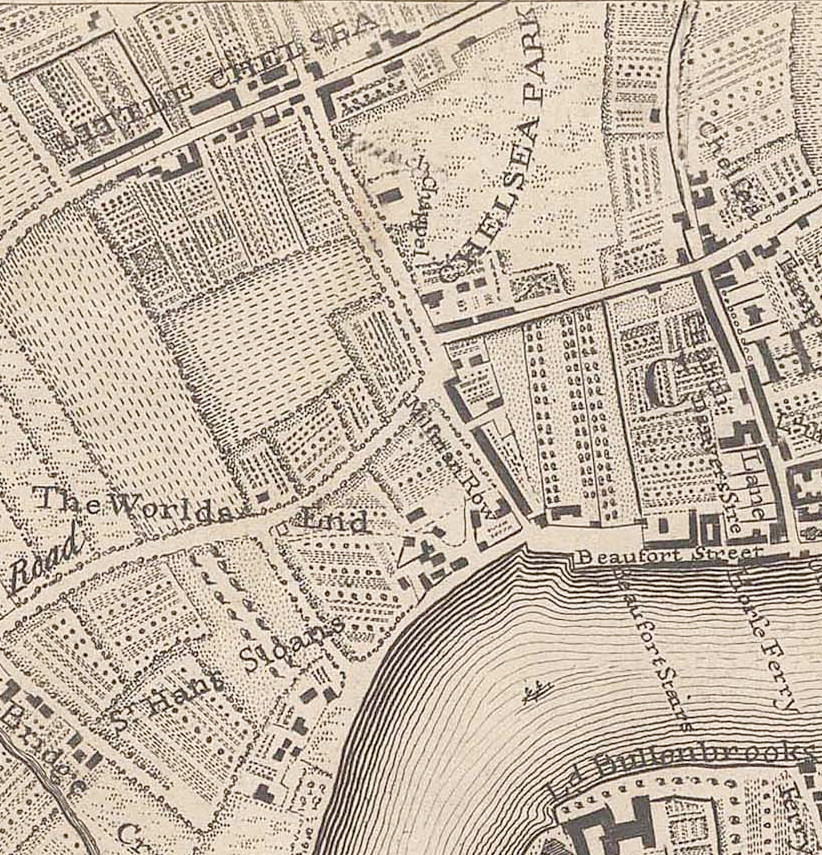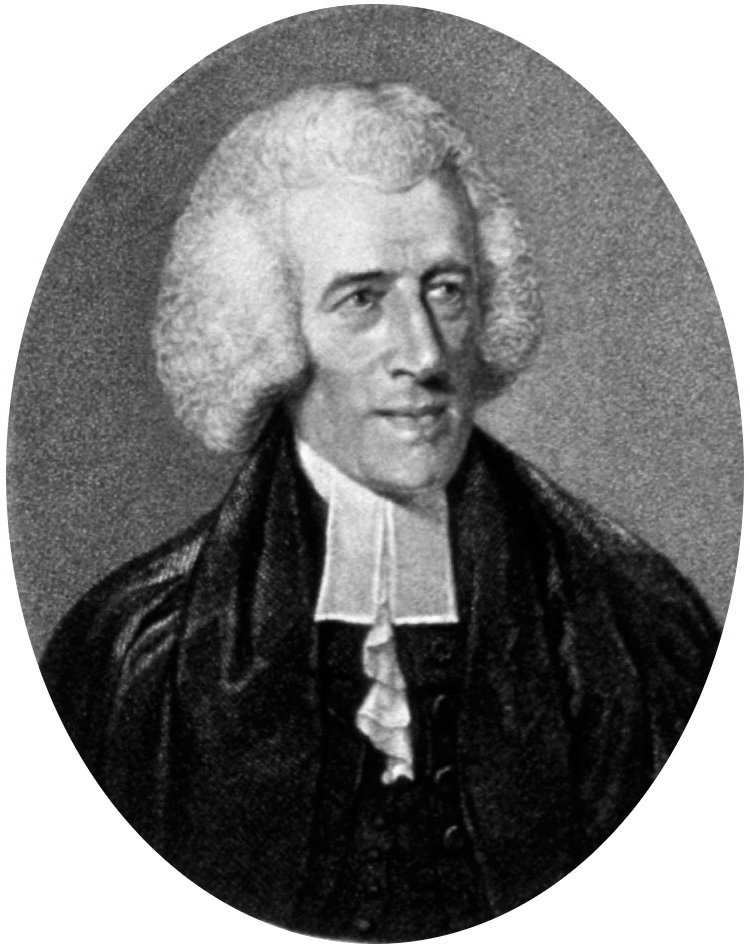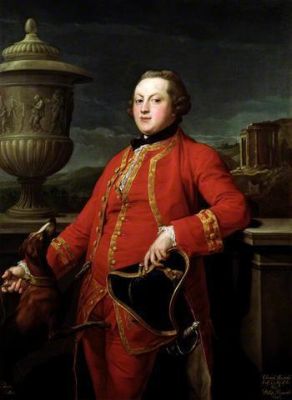|
Montagu Bacon
Montagu Bacon (1688–1749) was an English scholar and critic. Life Bacon was the second of the three sons of Nicholas Bacon, son and heir of Nicholas Bacon, of Shrubland Hall, Barham, Suffolk. Paternally he was descended from Sir Nicholas Baker; and maternally from the Earl of Sandwich. His mother was the Lady Catherine Montagu, youngest daughter of Edward Montagu, 1st Earl of Sandwich. Bacon was born at Coddenham, and educated at Westminster School. He entered the Middle Temple in 1704. He was admitted a fellow-commoner of Trinity College, Cambridge, in 1704–5, but seems not to have taken a degree until 1734, when he proceeded Master of Arts. Before then he had resided in Leicestershire. In 1743 Bacon was presented by the University of Cambridge, in whose gift it then was, in consequence of the disability of the proper patron, Edward Howard, 9th Duke of Norfolk, to the rectory of Newbold Verdon. He then suffered a breakdown, but was permitted to retain the rectory till his ... [...More Info...] [...Related Items...] OR: [Wikipedia] [Google] [Baidu] |
Nicholas Bacon (Ipswich MP)
Sir Nicholas Bacon (c. 1622–1687) was a Tory M.P. for Ipswich, between 16 March 1685 and his death in 1687. He served with Sir John Barker. He was the son of Nicholas Bacon of Shrubland Hall, Suffolk, and his wife Martha Bingham. His father was educated at Emmanuel College, Cambridge before being admitted to Gray's Inn The Honourable Society of Gray's Inn, commonly known as Gray's Inn, is one of the four Inns of Court (professional associations for barristers and judges) in London. To be called to the bar in order to practise as a barrister in England and Wale .... References Sources * English MPs 1685–1687 People of the English Civil War 1622 births 1687 deaths Members of the Parliament of England (pre-1707) for Ipswich Alumni of Emmanuel College, Cambridge Members of Gray's Inn {{17thC-England-MP-stub ... [...More Info...] [...Related Items...] OR: [Wikipedia] [Google] [Baidu] |
University Of Cambridge
, mottoeng = Literal: From here, light and sacred draughts. Non literal: From this place, we gain enlightenment and precious knowledge. , established = , other_name = The Chancellor, Masters and Scholars of the University of Cambridge , type = Public research university , endowment = £7.121 billion (including colleges) , budget = £2.308 billion (excluding colleges) , chancellor = The Lord Sainsbury of Turville , vice_chancellor = Anthony Freeling , students = 24,450 (2020) , undergrad = 12,850 (2020) , postgrad = 11,600 (2020) , city = Cambridge , country = England , campus_type = , sporting_affiliations = The Sporting Blue , colours = Cambridge Blue , website = , logo = University of Cambridge logo ... [...More Info...] [...Related Items...] OR: [Wikipedia] [Google] [Baidu] |
English Literary Critics
English usually refers to: * English language * English people English may also refer to: Peoples, culture, and language * ''English'', an adjective for something of, from, or related to England ** English national identity, an identity and common culture ** English language in England, a variant of the English language spoken in England * English languages (other) * English studies, the study of English language and literature * ''English'', an Amish term for non-Amish, regardless of ethnicity Individuals * English (surname), a list of notable people with the surname ''English'' * People with the given name ** English McConnell (1882–1928), Irish footballer ** English Fisher (1928–2011), American boxing coach ** English Gardner (b. 1992), American track and field sprinter Places United States * English, Indiana, a town * English, Kentucky, an unincorporated community * English, Brazoria County, Texas, an unincorporated community * Engl ... [...More Info...] [...Related Items...] OR: [Wikipedia] [Google] [Baidu] |
1749 Deaths
Events January–March * January 3 ** Benning Wentworth issues the first of the New Hampshire Grants, leading to the establishment of Vermont. ** The first issue of ''Berlingske'', Denmark's oldest continually operating newspaper, is published. * January 21 – The Teatro Filarmonico, the main opera theater in Verona, Italy, is destroyed by fire. It is rebuilt in 1754. * February – The second part of John Cleland's erotic novel ''Fanny Hill'' (''Memoirs of a Woman of Pleasure'') is published in London. The author is released from debtors' prison in March. * February 28 – Henry Fielding's comic novel ''The History of Tom Jones, a Foundling'' is published in London. Also this year, Fielding becomes magistrate at Bow Street, and first enlists the help of the Bow Street Runners, an early police force (eight men at first). * March 6 – A "corpse riot" breaks out in Glasgow after a body disappears from a churchyard in the Gorbals district. Suspicion fa ... [...More Info...] [...Related Items...] OR: [Wikipedia] [Google] [Baidu] |
1688 Births
Events January–March * January 2 – Fleeing from the Spanish Navy, French pirate Raveneau de Lussan and his 70 men arrive on the west coast of Nicaragua, sink their boats, and make a difficult 10 day march to the city of Ocotal. * January 5 – Pirates Charles Swan and William Dampier and the crew of the privateer ''Cygnet'' become the first Englishmen to set foot on the continent of Australia. * January 11 – The Patta Fort and the Avandha Fort, located in what is now India's Maharashtra state near Ahmednagar, are captured from the Maratha clan by Mughul Army commander Matabar Khan. The Mughal Empire rules the area 73 years. * January 17 – Ilona Zrínyi, who has defended the Palanok Castle in Hungary from Austrian Imperial forces since 1685, is forced to surrender to General Antonio Caraffa. * January 29 – Madame Jeanne Guyon, French mystic, is arrested in France and imprisoned for seven months. * January 30 (January 20, 1687 old styl ... [...More Info...] [...Related Items...] OR: [Wikipedia] [Google] [Baidu] |
A Catalogue Of Notable Middle Templars, With Brief Biographical Notices/Bacon, Montagu
A, or a, is the first letter and the first vowel of the Latin alphabet, used in the modern English alphabet, the alphabets of other western European languages and others worldwide. Its name in English is ''a'' (pronounced ), plural ''aes''. It is similar in shape to the Ancient Greek letter alpha, from which it derives. The uppercase version consists of the two slanting sides of a triangle, crossed in the middle by a horizontal bar. The lowercase version can be written in two forms: the double-storey a and single-storey ɑ. The latter is commonly used in handwriting and fonts based on it, especially fonts intended to be read by children, and is also found in italic type. In English grammar, " a", and its variant " an", are indefinite articles. History The earliest certain ancestor of "A" is aleph (also written 'aleph), the first letter of the Phoenician alphabet, which consisted entirely of consonants (for that reason, it is also called an abjad to distinguish it fro ... [...More Info...] [...Related Items...] OR: [Wikipedia] [Google] [Baidu] |
Zachary Grey
Zachary Grey (6 May 1688 – 1766) was an English priest, controversialist, and conservative spokesman for the Church of England. He was also an editor, commentator on William Shakespeare, and critic of dissenter historians. Life Grey was the son of an Anglican priest and graduated from Trinity Hall, Cambridge, getting his LL.B. in 1709 and LL.D. in 1720. He was ordained a priest by the Bishop of London in 1711, and he left Cambridge to take up two livings: Houghton Conquest in Bedfordshire in 1725, and the parish of St Giles' and St Peter's in Cambridge. He served in Cambridge during the winter months and lived most of the year in the town of Ampthill, which put him near Houghton Conquest. Grey had a first marriage that ended quickly, and then he married Susanna Hatton, daughter of a Cambridge tavern keeper, in 1720, and the couple had two daughters to survive, and both of these married clergy. Grey died in Ampthill in 1766 and was buried at his church in Houghton Conque ... [...More Info...] [...Related Items...] OR: [Wikipedia] [Google] [Baidu] |
Little Chelsea
Little Chelsea was a hamlet, located on either side of Fulham Road, half a mile Southwest of Chelsea, London. The earliest references to the settlement date from the early 17th century, and the name continued to be used until the hamlet was surrounded by residential developments in the late 19th century. History Evidence of a settlement known by this name appears in the Kensington parish burial record for a child in 1617 and magistrates accounts of an alehouse run by Thomas Freeman in 1625. By the 1670s, the Hearth tax lists 23 buildings, of various size and quality, and the section of Fulham Road that ran through the hamlet was known as 'Little Chelsey streete'. A school was operating in 1703, and, by 1737 there were two public houses in Fulham Road, including the 'Coach and Horses' near Park Walk. In 1811, the area's mixed character remained with: "... weather-boarded cottages, shops, builders' premises and schools in this part of Fulham Road, but also houses occupied by wea ... [...More Info...] [...Related Items...] OR: [Wikipedia] [Google] [Baidu] |
Thomas Martyn
Thomas Martyn (23 September 1735 – 3 June 1825) was an English botanist and Professor of Botany at Cambridge University. He is sometimes confused with the conchologist and entomologist of the same name. Life Thomas Martyn was the son of the botanist John Martyn (1699–1768). He was educated in Chelsea and at Emmanuel College, Cambridge, graduating BA in 1756 and becoming a fellow of Sidney Sussex College and being ordained deacon in 1758. In 1759 he became MA and priest. In 1762 he succeeded his father as Professor of Botany at the University, and held the post until his death in 1825, though he only lectured until 1796 'as the subject was not popular'. Thomas Martyn's professorship at Cambridge lasted for 63 years, while his father had held the same post for 29 years. Thomas Martyn was elected a Fellow of the Royal Society in 1786. Works Two of Martyn's major works are ''Plantæ Cantabrigiensis'' (1763) and ''Flora Rustica'', 4 vols. (1792–1794). He translated the '' L ... [...More Info...] [...Related Items...] OR: [Wikipedia] [Google] [Baidu] |
Chelsea, London
Chelsea is an affluent area in west London, England, due south-west of Charing Cross by approximately 2.5 miles. It lies on the north bank of the River Thames and for postal purposes is part of the south-western postal area. Chelsea historically formed a manor and parish in the Ossulstone hundred of Middlesex, which became the Metropolitan Borough of Chelsea in 1900. It merged with the Metropolitan Borough of Kensington, forming the Royal Borough of Kensington and Chelsea upon the creation of Greater London in 1965. The exclusivity of Chelsea as a result of its high property prices historically resulted in the coining of the term "Sloane Ranger" in the 1970s to describe some of its residents, and some of those of nearby areas. Chelsea is home to one of the largest communities of Americans living outside the United States, with 6.53% of Chelsea residents having been born in the U.S. History Early history The word ''Chelsea'' (also formerly ''Chelceth'', ''Chelchith' ... [...More Info...] [...Related Items...] OR: [Wikipedia] [Google] [Baidu] |
Newbold Verdon
Newbold Verdon is a village and civil parish in the county of Leicestershire, England. The parish includes Newbold Heath to the north and Brascote to the south. Originally an agricultural centre Newbold Verdon grew in size during the 1850s with the expansion of coal mining in the area. That industry has now ceased leaving Newbold Verdon as a commuter village primarily serving Leicester (9 .5 miles east) and Hinckley (8.5 miles south). The 2001 census recorded a population of 3,193, which had reduced to 3,012 at the 2011 census. Newbold Verdon is situated on the B582 route between the similar-sized villages of Barlestone and Desford, and is east of the small market town of Market Bosworth. Etymology The Domesday Book (1086) records the settlement as ''Niwebold'' meaning 'New Build'. It acquired the suffix Verdon from Nicholas de Verdon who owned the manor in 1226. While the civil parish is Newbold Verdon the ecclesiastical parish retains the form Newbold de Verdun. Nicholas ... [...More Info...] [...Related Items...] OR: [Wikipedia] [Google] [Baidu] |
Edward Howard, 9th Duke Of Norfolk
Edward Howard, 9th Duke of Norfolk (5 June 1686 – 20 September 1777), of Worksop Manor in Nottinghamshire and of Norfolk House in London, was a British peer, politician and hereditary Earl Marshal. Origins He was the third of the five sons of Lord Thomas Howard (d.1689), of Worksop (younger brother of Henry Howard, 7th Duke of Norfolk (d.1701), both sons of Henry Howard, 6th Duke of Norfolk (d.1684)) by his wife Mary Elizabeth Savile (d.1732). An elder brother Henry Howard (1684-1720) was Roman Catholic Bishop-elect before his death. His younger brothers were Richard Howard (1687-1722) who died in Rome, where he was a Canon of St. Peter Basilica and Philip Howard (1688-1750). Career He took part in the Jacobite Rising of 1715, one of several English noblemen to do so. Through the intercession of his brother, he escaped the punishment for high treason. He succeeded as 9th Duke of Norfolk in 1732, after the death of his childless elder brother Thomas Howard, 8th Duke of Norfol ... [...More Info...] [...Related Items...] OR: [Wikipedia] [Google] [Baidu] |





.jpg)

